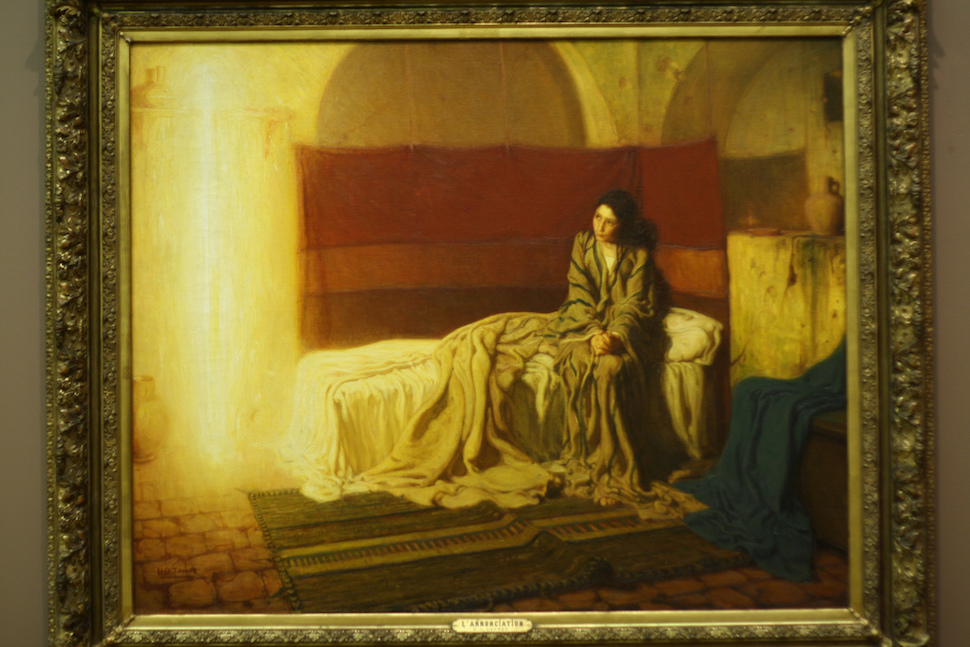This week, we’re looking into how researchers determine a counterfeit piece of art is actually fake, checking out the story of a 61-year old Australian potato farmer who won an ultramarathon and browsing the map of physics.
Welcome to Lifehacker’s Thinking Cap, a series where we round up interesting, informative and thought-provoking podcasts, interviews, articles and other media that will teach you something new, inspire you and hopefully cap off your week nicely.
The Map of Physics
Speaking as someone who has studied physics and come out with a degree in it on the other side, I can happily corroborate the notion that it’s a huge subject area that encompasses virtually everything we know and understand about the universe and how it works, interacts with itself and how objects in it interact with each other.
That said, that means that the vastness of the topic can be difficult to broach at times, and this “map of physics” aims to break it down a bit to be more approachable — especially so you understand what area of physics you’re discussing when you’re reading about some new experiment or news, or when you’re studying something in particular that you’re interested in. The video is a bit long, but it’s absolutely worth it, especially if you have any interest in the subject at all. If you want your own map, you can check the full image out on Flickr here. [via Dominic Walliman (YouTube), thanks Kottke!]
The 61 Year Old Potato Farmer Who Went On to Win an Ultramarathon
Proving that you’re never too old to do something you love, and that while obstacles are real and challenges may hold you back, you should try anyway, the story of Cliff Young, the Australian ultramarathoner who won a 875km race at the age of 61, against a ton of other, professional competitors, is inspiration to all of us. This isn’t ancient history either, he did this in 1983.
The latest edition of the Futility Closet podcast tackles his story in greater detail, and walks you through everything you need to know about his inspiration, his unusual training regimen and his background. [via Boing Boing]
How Scientists Determine a Piece of Art is Counterfeit

The science that goes into making sure that a “suddenly unearthed” or “discovered in a basement” piece of art by a great artist is actually real and not a fake — even a highly complicated and detailed forgery designed to fool international art markets — is really impressive.
This Mental Floss article goes into exactly what that investigative process looks like, the tools that researchers use to determine that a piece is indeed fake and, of course, what the implications are and how big an industry fake art really is. It’s a great read, bulleted with the specific tools and techniques used to determine that a painting may not be as old — or as real — as it’s purported to be by its seller. [via Mental Floss]
The Experience Machine, or Whether a Pleasurable Life is Key to a Good One
This classic thought experiment is often repeated to philosophy students, but it’s a lot of fun to examine as a layperson as well. It’s called The “Experience Machine“, and the basic question, posed by philosopher Robert Nozick in 1974, goes like this:
Nozick asks us to imagine a machine that could give us whatever desirable or pleasurable experiences we could want. Psychologists have figured out a way to stimulate a person’s brain to induce pleasurable experiences that the subject could not distinguish from those he would have apart from the machine. He then asks, if given the choice, would we prefer the machine to real life?
There are obviously some concerns here, but the goal of the question is to ask the question: Is a pleasurable life a good one, and if so, does that mean that anything performed that’s contrary to pleasure or a good experience is detrimental to a good life?
The thought experiment is usually used to refute the concept of “ethical hedonism“, or the philosophy that seeking out pleasurable, happy experiences is the only worthwhile experience in life. PBS’s Idea Channel tackles the thought experiment in this video, and does a great job dressing it down — and forcing you to think about the question yourself. [via PBS Idea Channel (YouTube)]
Flying Over Silver Plume, Colorado (in 4K)
If a lot of that stuff was a little heavy, let’s lighten things up with a flyover of Silver Plume, Colorado in the snow, from Evan Schneider on Vimeo. It’s a gorgeous five minute respite from an otherwise difficult, unrelenting and tough world. Enjoy it, and have a great weekend. [via Evan Schneider (Vimeo)]
That’s all for this week. If you have thought-provoking stories, interesting podcasts or eye-opening videos, share them in the comments below!
Title illustration by Nick Criscuolo. Additional photo by Thomas Cowart.

Comments